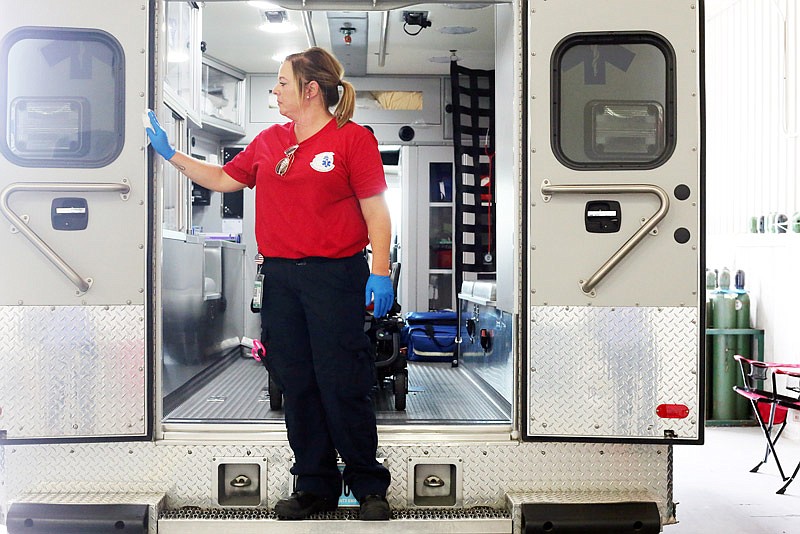Cole County Ambulance Director Jerry Johnston plans to meet with his staff today to see how many are interested in working 24-hour shifts if the service were to return to that scheduling.
Cole County commissioners, Johnston, Auditor Kristin Berhorst and Financial Officer Debbie Malzner considered potential scenarios Thursday.
The County Commission approved the Cole County Ambulance Service's move from 24-hour shifts to 12-hour shifts in August. Johnston said one of the main reasons for the change was to avoid fatigued ambulance staff.
As of Thursday, the service is still down seven full-time paramedics, Johnston said. Those were the only openings on the 54-person staff. All communication and emergency medical technician positions have been filled, and there are 40 part-time staff. There are 13 full-time paramedics currently working, with the budget allowing for 21.
It's because of the lack of paramedics that the county has tried various ways to recruit new staff, but Johnston said nothing has really changed since January and the service is reaching a critical point where something has to be done.
The scenario Johnston will discuss with staff, who he said earlier this week seemed to want to return to 24-hour shifts, would be two 24-hour shifts, which is what the service was doing prior to August. Full-time staff would work two days a week, with part-time staff working 12-hour shifts.
The change would come with some change in hourly rates, but how much depends on how many current staff would be willing to return to 24-hour shifts and the seniority of those staff who agreed to do so. That's what Johnston said he would find out Friday.
Johnston said moving to 24-hour shifts will be less expensive than the current situation. The service is using a combination of part-time employees and supervisors to man shifts for open positions. He said Tuesday they were 70 percent over budget for overtime, with one person working 156 hours of overtime.
Johnston said they have interviews with two potential full-time paramedics next week, and a move to 24-hour shifts could attract people from longer distances who don't want to move here, which a 12-hour shift would make them do. They also would have more flexibility to take care of other areas of their life.
Presiding Commissioner Sam Bushman said he supported returning to 24-hour shifts.
"I still think the 12-hour shifts are the way to go, especially if we have the call volume or demand that would allow for it," Eastern District Commissioner Jeff Hoelscher said. "I just feel we'd be going backwards if we did this because when we were at 24 hours, we had problems filling spots."
Hoelscher and Bushman agreed the commission should look again at providing funds for scholarships to allow EMTs to get training to become paramedics. Johnston said it takes about a year to complete the training, and they currently have two EMTs going through it right now. He also said the service would do its own in-house EMT training for the first time this fall.
Also, because they have a full staff of EMTs, they will be running their transfer-only van to cut down on calls that don't require paramedics.
Johnston and the commissioners will meet again Tuesday and are hopeful they'll have a solution.

